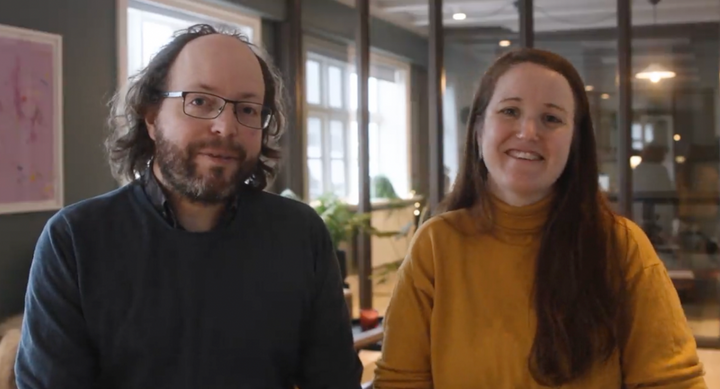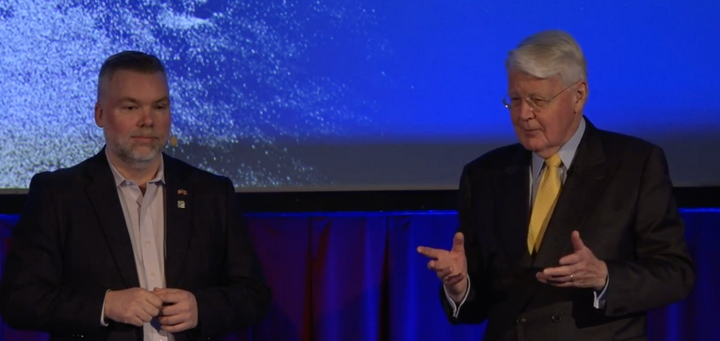New, bigger grants introduced at the Technology Development Fund
Earlier this month, the Icelandic Centre for Research (Rannís) unveiled its strategy for the Technology Development Fund going forward. According to a statement, the purpose of the changes is to make the fund more open and effective for applications from a wider range of individuals and organizations. The first new grant, Applied Research Project Grant, has an application deadline of February 15th, and Seed (ísl: Fræ), a new grant aimed at entrepreneurs in the starting stages, will open to applications in late February.

“Work on this strategy started in May 2014 after the Science and Technology Policy Council’s published its Action Plan for the period 2014 to 2016. One of the actions was to propose a considerable increase in funding of the big competitive funds,” Sigurður Björnsson, Head of Science and Innovation at the Icelandic Centre for Research told Norðurskautið. “With increased funding, it was decided to work on the new strategy and reorganise the funding mechanism to make sure it can be of best use for innovation in Iceland.”
These changes address many of the things criticised in an opinion piece on the matter previously posted on Norðurskautið.
Four new types of grants introduced
The biggest changes for entrepreneurs and startups, is that two types of grants are turned into four types.
Previously Project grants (ísl: Verkefnisstyrkir) were the biggest grants and the grant that many startups applied to. Companies of all sizes and ages could apply to this fund which has led to criticism when big, old, profit bearing companies have received such grants. As of autumn 2016, the project grants will be changed.
In addition to the project grants, TDF has had Pioneer grants (ísl: Frumherjastyrkir) meant for early stage companies and entrepreneurs that have projects in the initial stages.

These two grant types, Project grant and Pioneer grant, will be changed in autumn 2016. “We’re discontinuing these two and introducing four new grants this year. We’ll open applications for the first of these four, Project Grant – Seed (ísl: Fyrirtækjastyrkur – Fræ) this April.”
These new types of grants bring many changes.
First of all, the fund now offers a wider range of amounts, from ~$11.5K (Seed / Fræ) to $540K (Sprint / Sprettur). The maximum allotted time has been shortened to two years (was 3 years), and company size and age limits have been added.
The smaller grants are only available to companies under the age of 5, and the bigger ones are for “small and medium sized companies” (according to their website).
According to Sigurður, small and medium sized companies are defined as the following:
- Small:
- Under 50 employees, or
- Under €10 million in turnover, or
- Balance sheet total of under €10 million
- Medium:
- 51-250 employees, and / or
- Under €50 million in turnover, and / or
- Balance sheet total of under €43 million
This means that to be ineligable for these grants, companies need to have more than 250 employees, or more than €50 million in turnover, or a balance sheet total of more than €43 million.
| Seed / Fræ | Seedling / Sproti | Growth / Vöxtur | Sprint / Sprettur | |
| Amount | $11.500 (1.5m ISK) | $80K / year (10m ISK / year) | $190K / year (25m ISK / year) | ($270K / year (35m ISK / year) |
| Length of project | max 5 months | max 2 years | max 2 years | max 2 years |
| Eligable applicants | Individuals, companies under 5 years of age | Individuals, companies under 5 years of age | Small and medium sized companies | Small and medium sized companies |
Overview of the new project grants. See list of new grant types.
“We need to encourage entrepreneurs to go out there and explore their ideas. That’s the purpose of the Seed grant, to start the journey and test the idea,” Sigurður says.
Companies applying to the largest grant, Sprettur, will be expected to show additional capital, for example in the form of venture investment, to accompany the grant. “We have not decided if a new matching capital, for example from investors, will be a requirement, but the company has to demonstrate strong financial capability,” Sigurður says.
The other grants will be open for applications this autumn.
Special grants for research projects
Accompanying the changes to project grants, the TDF will introduce a Applied Research Project Grant, aimed at research institutions. “We’ll open for applications for the Applied Research Project Grant for deadline in February – to encourage technical transfer into the industry,” Sigurður told us.
“Iceland is strong in academic research, but in commercialization of the research findings we are behind our neighbors,” Sigurður says, and notes that the grant will require applicants to supply clear objectives on commercialization for their products.
This added grant resolves some of the criticism previously raised, where Universities and public research institutions received grants from the same fund as startups.
Norðurskautið covers the Icelandic Startup and Tech scene. Follow us on Twitter or sign up for our mailing list to keep up to date. You can also join our Slack community – http://bit.ly/slack-is
[mc4wp_form]




